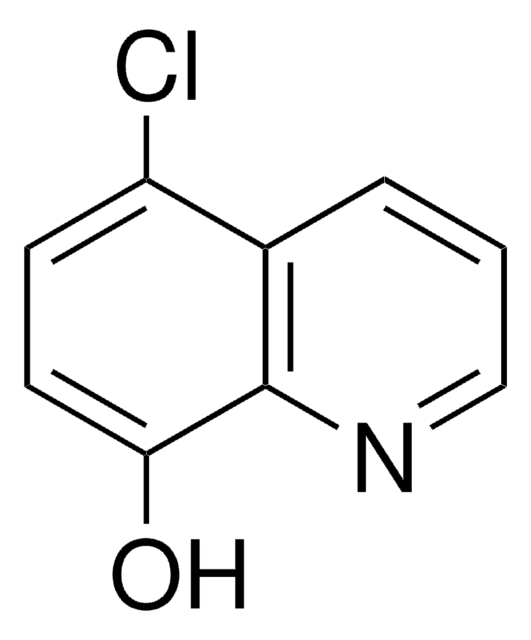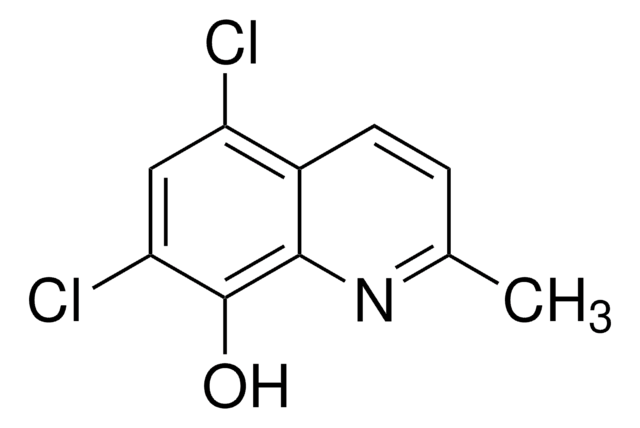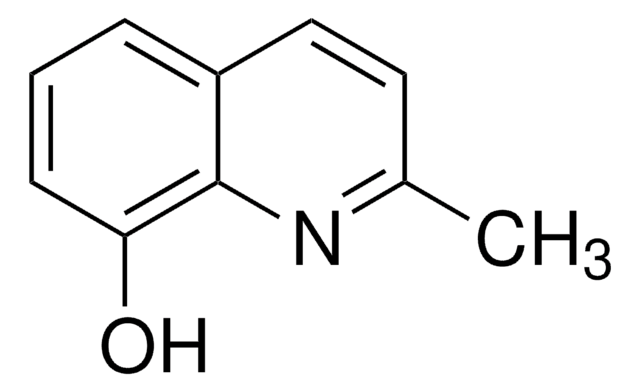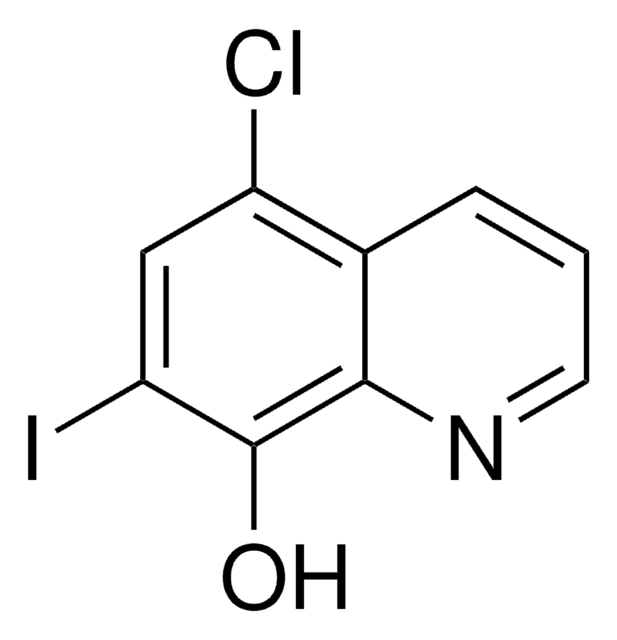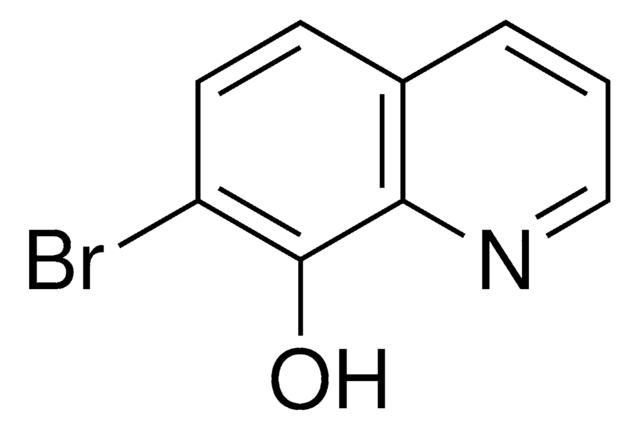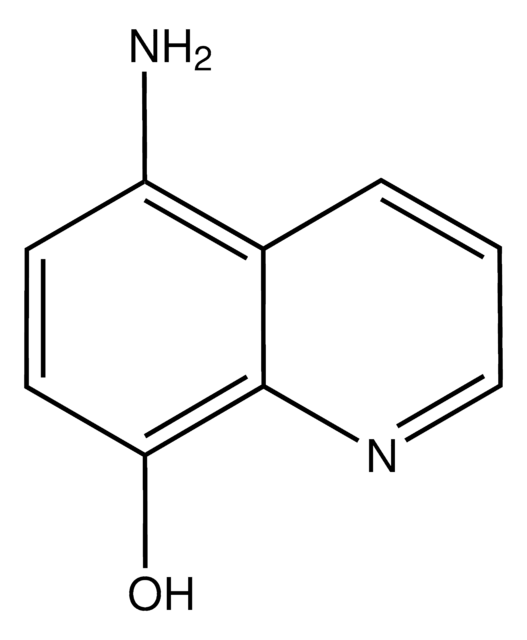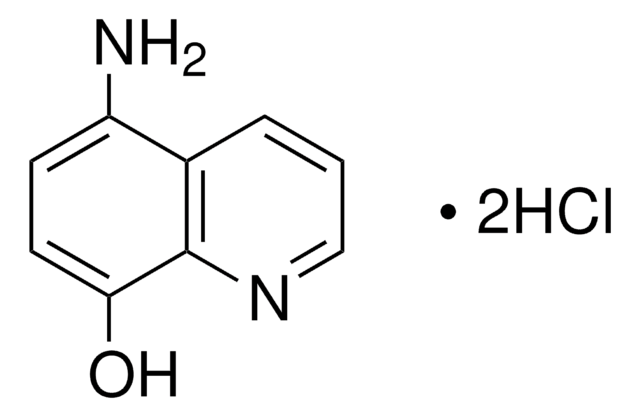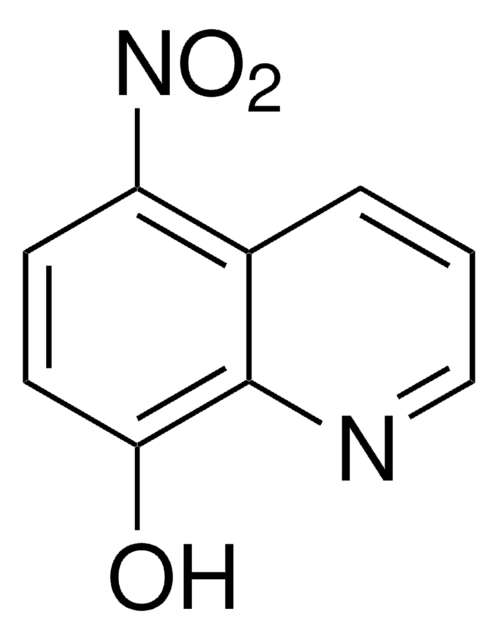D123609
5,7-Diiodo-8-hydroxyquinoline
95%
Synonym(s):
5,7-Diiodo-8-quinolinol
Sign Into View Organizational & Contract Pricing
All Photos(2)
About This Item
Empirical Formula (Hill Notation):
C9H5I2NO
CAS Number:
Molecular Weight:
396.95
EC Number:
MDL number:
UNSPSC Code:
12352100
PubChem Substance ID:
NACRES:
NA.22
Recommended Products
Quality Level
Assay
95%
form
crystals
mp
>200 °C (dec.) (lit.)
SMILES string
Oc1c(I)cc(I)c2cccnc12
InChI
1S/C9H5I2NO/c10-6-4-7(11)9(13)8-5(6)2-1-3-12-8/h1-4,13H
InChI key
UXZFQZANDVDGMM-UHFFFAOYSA-N
Looking for similar products? Visit Product Comparison Guide
Signal Word
Danger
Hazard Statements
Precautionary Statements
Hazard Classifications
Acute Tox. 4 Oral - Eye Dam. 1
Storage Class Code
11 - Combustible Solids
WGK
WGK 3
Flash Point(F)
Not applicable
Flash Point(C)
Not applicable
Choose from one of the most recent versions:
Already Own This Product?
Find documentation for the products that you have recently purchased in the Document Library.
Customers Also Viewed
Relapse of intestinal and hepatic amebiasis after treatment.
Elizabeth W Hwang et al.
Digestive diseases and sciences, 56(3), 677-680 (2010-12-22)
F T Chan et al.
Antimicrobial agents and chemotherapy, 38(5), 1157-1160 (1994-05-01)
Susceptibility testing was performed on Dientamoeba fragilis ATCC 30948 in a dixenic culture with Klebsiella pneumoniae and Bacteroides vulgatus. D. fragilis was cocultured with the bacteria in TYGM-9 medium (ATCC medium 1171). The activities of antiparasitic drugs were assessed by
A K Fisher et al.
Journal of toxicology. Clinical toxicology, 31(1), 113-120 (1993-01-01)
This case report describes seizures and encephalopathy in a nine year-old boy treated with iodoquinol for amebiasis. The toxicity of iodoquinol and other 8-hydroxyquinolines is discussed. The radiopacity of this medication, used worldwide for the treatment of diarrheal illnesses and
S Ghaskadbi et al.
Mutation research, 222(3), 219-222 (1989-03-01)
We have previously shown that the common antiamebic drug diiodohydroxyquinoline (DIHQ) exhibits mutagenic activity in the in vivo micronucleus test in Swiss albino mice. Results of experiments undertaken to study the influence of ascorbic acid (vitamin C) on the mutagenicity
Huai-Ren Chang et al.
Internal medicine (Tokyo, Japan), 51(5), 471-474 (2012-03-03)
Amoebiasis is a worldwide parasitic infection although it is more prevalent in the subtropical and tropical countries. Extraintestinal amoebic infections currently have been reported in increased numbers of male homosexuals and immunocompromised patients. Here, we present an interesting case of
Our team of scientists has experience in all areas of research including Life Science, Material Science, Chemical Synthesis, Chromatography, Analytical and many others.
Contact Technical Service
